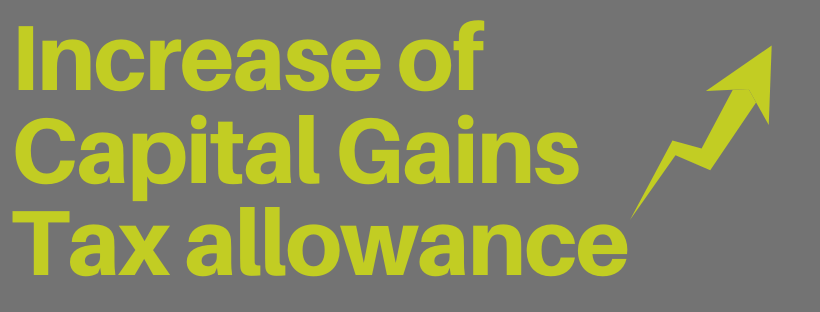- Basildon 01268244144
- Chelmsford 01245453800
- Colchester 01206217300
- London 020 4586 1280
Search site
Call our office
Make an enquiry
Our people
Search our people

The Chancellor of the Exchequer, Rishi Sunak, presented the 2020 Budget on 11 March 2020 and announced that the government will be increasing the Capital Gains Tax allowance for the 2020/2021 tax year.
Capital Gains Tax is the tax you pay on any profit that you make when you dispose of an asset that has increased in value.
For example, if you bought an antique for £10,000 and sold it later for £30,000, this means that you have a gain of £20,000 (sale price minus the bought price).
Any of the following constitutes the disposal of an asset:
An asset is one of the following:
The following are Capital Gains Tax exempt:
From the 2020/2021 tax year, the Capital Gains Tax allowance will increase from £12,000 to £12,300 for individuals (and personal representatives) and from £6,000 to £6,150 for trustees of settlements.
Whilst the increase is not a lot, any increase is beneficial. The allowance means that you can offset any capital gains you have made with the allowance, which ultimately means that you will pay less tax.
For example, in the scenario above, an individual could offset their allowance of £12,300 against their gain of £20,000 for selling the antique. The individual would therefore only be taxed on £7,700 (the difference between the bought price and sale price, minus their individual allowance).
If you are a personal representative and would like advice regarding Capital Gains Tax and a deceased’s estate, then please do not hesitate to contact our Wills, Trust and Probate team.
I based in our Colchester office and can be contacted on 01206 217609 or leah.woodnott@birkettlong.co.uk.
We use essential cookies to make our site work. We'd also like to set analytics cookies that help us make improvements by measuring how you use the site. Clicking Reject All only enables essential cookies. For more detailed information about the cookies we use, see our Cookies page. For further control over which cookies are set, please click here
Our use of cookies.
You can learn more detailed information in our Privacy Policy
Some cookies are essential, whilst others help us improve your experience by providing insights into how the site is being used. The technology to maintain this privacy management relies on cookie identifiers. Removing or resetting your browser cookies will reset these preferences.
Essential Cookies
These cookies enable core website functionality, and can only be disabled by changing your browser preferences.
Google Analytics cookies help us to understand your experience of the website and do not store any personal data. Click here for a full list of Google Analytics cookies used on this site.
Third-Party cookies are set by our partners and help us to improve your experience of the website. Click here for a full list of third-party plugins used on this site.

Comments